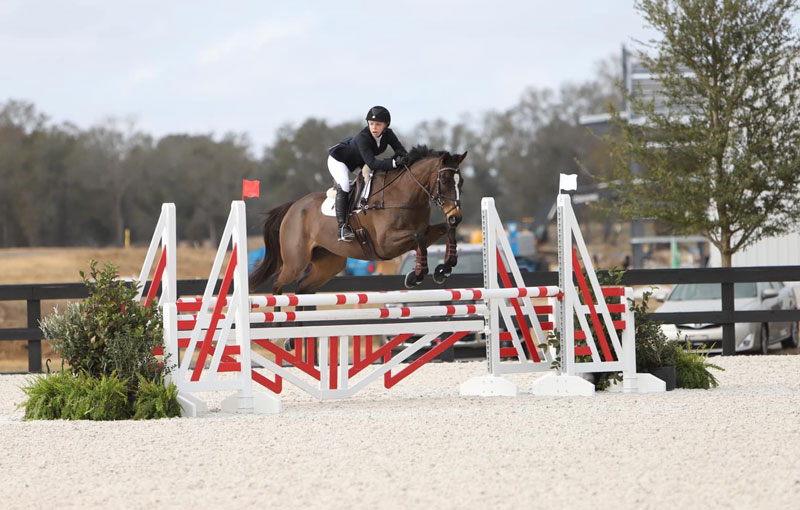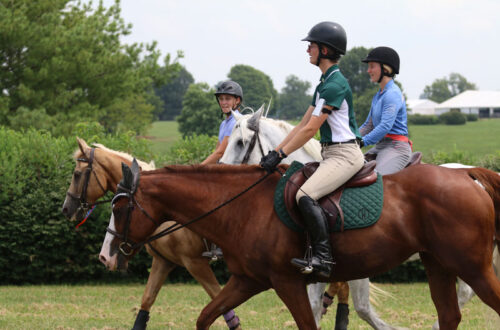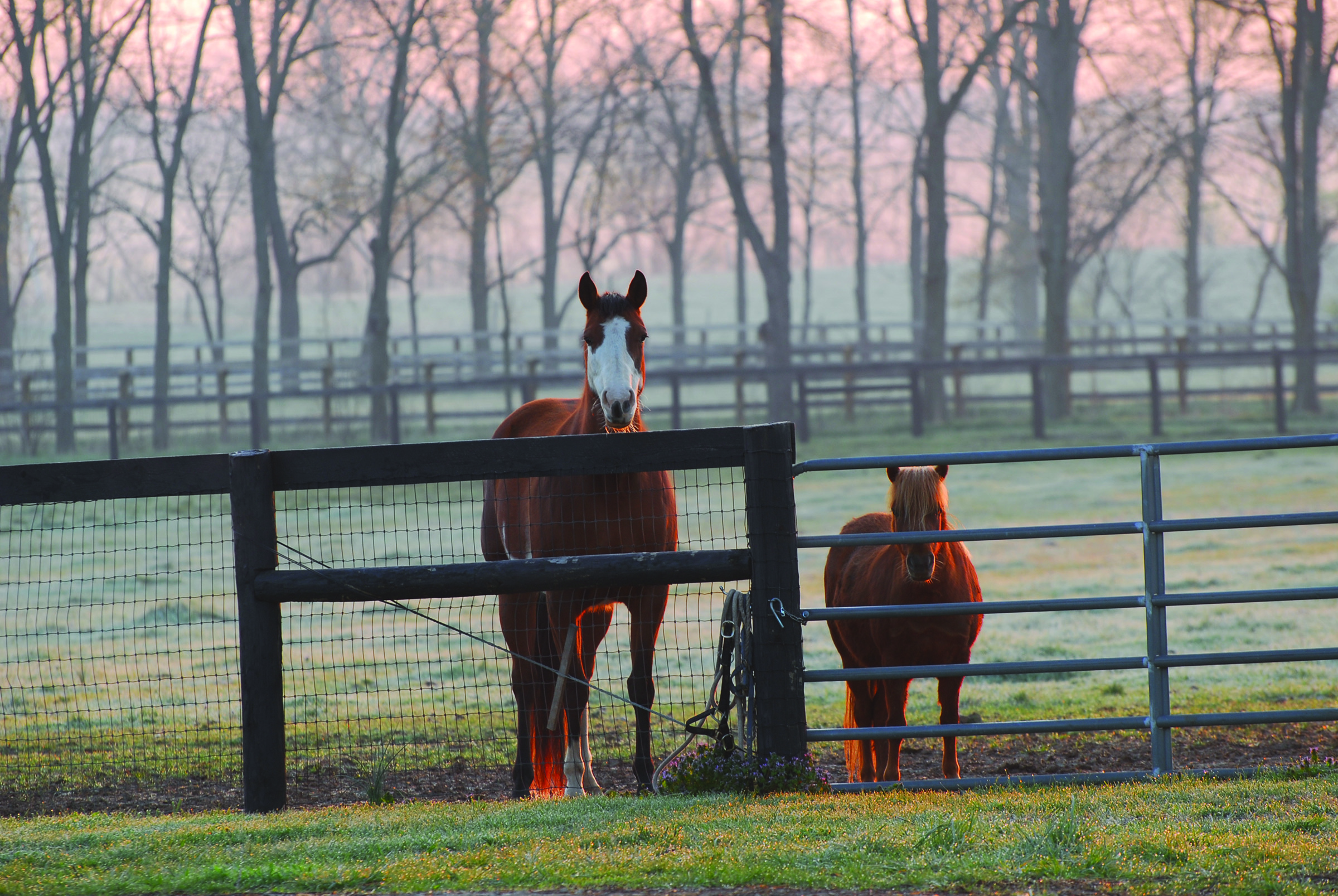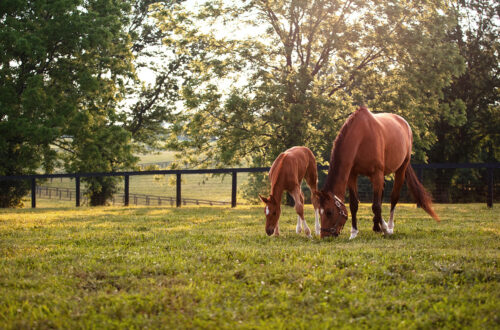
Tough Decisions: When Horse Ownership Doesn’t Fit With Life, Is Leasing Out Your Horse a Good Option?
By Lauren Scherrer, 2022-2023 NYB Member
When horse ownership becomes hard, learn what you need to consider when leasing out your horse.
To give you a little bit of information about me, I have been a member of the United States Pony Clubs since 2014, and I am a member of Deep Run Hunt Pony Club in the Virginia Region with an H-B in Horse Management, a C-3 in Eventing, and a B in Show Jumping. My horse is named Princely Perfect, but I call him Goober. He is an 11-year-old bay Thoroughbred gelding.
While I have owned him for numerous years, Goober and I most recently competed together at the 2022 Championships East in Tryon, N.C., in Show Jumping, where our team placed second overall in Show Jumping in the Standard Senior Advanced Division/Horse II and first in Horse Management. We were also awarded the Margo Leithead Award, which is named in honor of Pony Club’s 19th president and recognizes teams demonstrating excellence in Horse Management at USPC Championships.
Despite all the fun I’ve had with Goober over the years, being an equestrian going into college is not the easiest thing to do. Most people do not take their horse to college with them, but I was strong willed and wanted nothing more than to have my horse with me. I had Gooberwith me from freshman year to the first half of my junior year, but I soon realized that I was not being fair to myself or my horse. I wasn’t able to fully focus on my classes, nor was I able to give enough attention and time to my horse. So, I made one of the hardest decisions I have ever had to make.
I decided that the best thing to do was to lease him out to someone who would love him just as much as me. I have Pony Club to thank for making this decision a bit easier. Pony Club has given so much to me that it was my turn to give back to Pony Club. I am proud to say that Goober is leased out to a member of my own Deep Run Hunt Pony Club. They are doing amazing things together, and I couldn’t be more proud.
You may decide to lease a horse out for various reasons, but in my case, I knew it was better for my horse to get more attention. Leasing can also be helpful to help share the costs of horse ownership, to help another rider get the chance to ride an amazing horse that they might not be able to purchase, or to try out horse ownership before purchase of that horse or of any horse. Whether you might become the lessee (the one who leases a horse) or the lessor (the one who owns the horse and leases it out), you should always protect yourself with a contract that spells out all of the specifics, such as:
- The cost the lessee will pay and how payment should be made,
- For how long the lease lasts (the term) and if it can be renewed,
- Whether it is a full lease (the lessee is responsible for all of the horse’s expenses and usually has an upfront fee), a half/shared/partial lease (expenses are shared and so is the time with the horse), or a free/care lease (with no upfront or monthly costs but the lessee pays for all of the care);
- Where the horse will live and if he can be taken off property;
- Basic care needed for the horse;
- Who has access to ride the horse
- Which days the lessee has access to the horse (if it’s a shared lease between the owner and the lessee or more than one lessee),
- If there is an option to purchase and what those terms would be,
- Identification of the horse,
- The contact information for all involved,
- If the horse is insured and for how much and by who, and how that impacts the lease;
- Who is responsible for routine veterinary care and emergencies; if there is a preferred veterinarian, farrier, and other health-care providers to use; and who makes important health decisions for the horse during the lease;
- Additional expenses to be covered and who pays them, such as if the horse undergoes any additional training;
- Restrictions on the use of the horse;
- How you will communicate with each other about the horse’s health and welfare;
- What happens if there are legal disputes with the lease and where and how those will be handled;
- If the owner can still visit the horse;
- And anything else you think might be important to include.
With so much to consider, it’s best to have a professional legal expert create the lease contract as it is a legal document. There can be some risk involved. For instance, your horse could end up injured in someone else’s care, but we all know accidents happen. Or we could misjudge the character of the lessee. If we want to get the horse back at any point, it might not be so easy, and that could involve breaking a contract with penalties and legal issues that could arise from that. It’s important to look for a reputable person if you are going to lease your horse out. However, there are many benefits, too, for both parties.
If you are leasing, while you don’t own the horse and may have some restrictions, you get to ride a new horse and learn from that horse for the period of the lease. While you may have to share a horse with a part lease, many enjoy this arrangement if they can only ride a few days per week. And with any lease, if you decide you want to move on, you can do so without having to sell the horse. It can be difficult to sell a horse in some cases, so this makes moving on simpler. However, you will have the sadness of saying goodbye to a horse you may have come to love.
It’s also important when leasing a horse to match your skills to the level of the horse, and if you are leasing out your horse, you will want to find a rider that can handle your horse at his level. If a rider is too advanced for the horse, they could become bored, or if they are not skilled enough for your horse, then it could result in frustration for the rider and for the owner if they get a horse back with training issues.
With that said, I know Goober is enjoying life now with his lessor. It was the right decision for me, and I was happy to give him and his rider that opportunity to enjoy each other, even if it was a hard decision with a lot to consider.





